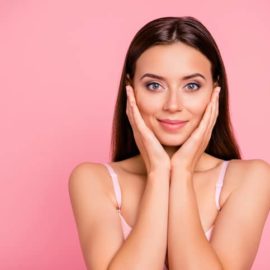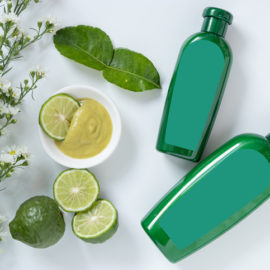Beauty and self-expression go hand in hand. Whether it’s a celebrity endorsement, luxury branding or sustainable cosmetics, the products you choose have a strong connection with identity. As such, consumers choose brands that resonate with their values. This is particularly the case for younger consumers, who believe that their appearance has a fundamental connection to who they are. According to market research conducted by the Fung Retail & Technology Group, Generation Z – that is, people born after 1996 – attach great importance to appearance as they are the first generation to have grown up “in public” on social media.
However, appearance is only a small part of the story for Generation Z. Although their reported concerns about image make them an important target market for the beauty industry, Gen Z has strong ethical convictions. Younger generations are more concerned than ever about their impact on the environment, and by extension, more likely to choose ethical, organic brands to satisfy their demand for beauty and personal care products. Therefore, to attract this important rising customer base, the cosmetics industry needs to appeal to Gen Z’s values.
Content
Gen Z: Putting their money where their mouth is
Beauty and grooming consumers from Generation Z actively seek products that match their values. Research suggests that 67% of consumers born after 1996 would stop using a brand if they felt they had unethical practices (Lightspeed/Mintel). As such, Gen Z consumers actively seek out sustainable cosmetics, with a strong tendency towards anti-waste principles, like unpackaged, reusable and refillable products. Meanwhile, 55% reported that they only buy cruelty-free beauty and grooming products.
Perhaps most importantly, Generation Z isn’t afraid to make their voices heard. Many beauty and cosmetics brands have been at the receiving end of negative press and boycott campaigns after revelations about animal testing practices. For instance, look at the criticism faced by beauty brand NARS after extending its market into China, where animal testing is compulsory. In the wake of an embarrassing #boycottnars Twitter campaign, the company was forced to make a compromising public statement about their decision.
Why brands should embrace diversity to appeal to Gen Z
Certainly, appearance is important to Generation Z; but their beauty standards are some of the most fluid and individual the market has ever seen. Indeed, as this generation grows up and their purchasing power increases, companies will need to find creative ways to respond to their inherent fluidity. For instance, beauty brands should seek to develop customizable products so consumers can experiment with different looks and techniques. Equally, a stand out shift is that consumers are moving away from gender stereotypes and embracing neutrality. According to research, 64% of Generation Z do not think that beauty/grooming products should be classified by gender (Lightspeed/Mintel), highlighting their rejection of traditional gender expression.
Developing diverse and sustainable cosmetics for a new breed of consumer
Generation Z is rapidly becoming some of the beauty industry’s most important consumers. According to the National Retail Federation, Generation Z accounts for $44 billion in buying power in the United States alone. By 2020, they’ll comprise 40% of the country’s entire consumer base, and thus, it’s essential that the beauty and personal care industry builds their preferences into their brand strategy. For Gen Z, their identity and values are central to their purchasing decisions. Therefore, the beauty sector should work towards ethical practices that embrace diversity, creating sustainable cosmetics and inclusive marketing campaigns.
No comments yet
There are no comments on this post yet.





Leave a comment